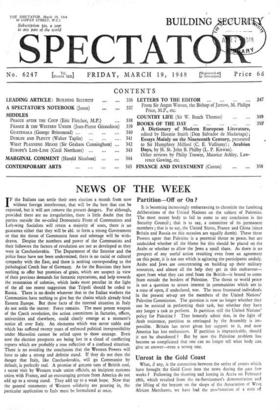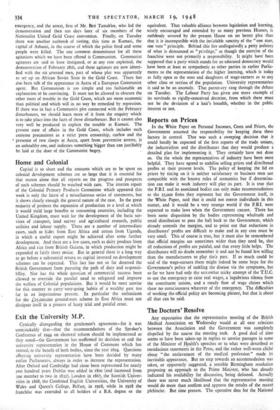Unrest in the Gold Coast
What, if any, is the connection between the series of events which have brought the Gold Coast into the news during the past few weeks ? Following the shooting and looting in Accra on February 28th, which resulted from the ex-Servicemen's demonstration and the lifting of the boycott on the shops of the Association of Wesq African Merchants, we have had the proclamation of a state of emergency, and the arrest, first of Mr. Berl Tamakloe, who led the demonstration and then ten days later of six members of the Nationalist United Gold Coast convention. Finally, on Tuesday there was another outbreak of rioting, this time at Kumasi, the capital of Ashanti, in the course of which the police fired and some people were killed. The one common denominator for all these agitations which we have been offered is Communism. Communist agitators are said to have instigated, or at any rate exploited, the demonstration of February 28th, and these agitators are now identi- fied with the six arrested men, part of whose plot was apparently to set up an African Soviet State in the Gold Coast. There has also been talk of the appearance in Accra of a European Communist agent. But Communism is too simple and too fashionable an explanation to be convincing. It must not be allowed to obscure the other roots of trouble in the Gold Coast, which are more economic than political and which will in no way be remedied by repression. If there was in fact a Communist plot connected with the February disturbances, we should learn more of it from the enquiry which is to take place into the facts of those disturbances. But it cannot also very well be produced to explain the trouble at Kumasi. The present state of affairs in the Gold Coast, which includes such extreme precautions as a strict press censorship, curfew and the • presence of two sloops at Accra, apart from preventive arrests, is an unhealthy one, and indicates something bigger than can justifiably be laid at the door of the Communist bogey.































